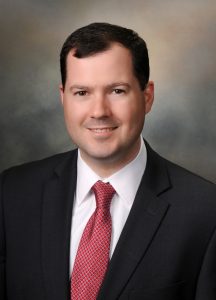On February 13, 2020, I sent an email to the CIRAS leadership team about this thing called Coronavirus hitting China. Here is how it ended:

CIRAS Program Manager, Manufacturing Extension Partnership
The short answer … is that there is very little impact today. But, depending on a lot of factors, moderate to significant impact will happen soon once inventories dry up. Depending on the length of shutdowns, the repercussions could extend for a seriously long period.
I think we should start up the disaster response team to get our hands around this.
At that time, we had no idea what we were in for and did not grasp the direness of the situation that public health experts were warning of.
What did we do? What we always do: acted. We spent the next week talking to partners, supply chain experts, manufacturers, and just about anybody we could to understand the situation and provide clarity to Iowa industry.
I’m an engineer. I thrive in numbers, systems, and processes. One year in, I could fill books with the amazing accomplishments of our team over the past year. Instead, I want to focus on some of the key lessons I’ve learned about us.
First, a little background. We’ve spent the last five years building on a strong core, bringing on twenty new team members with great skills that love giving back and making Iowa business better. We went in to 2020 excited about our team, but with a lot of uncertainty on how to take our next leap.
By the time March rolled, around the challenge was clear: Help Iowa industry survive the pandemic. Everything else was secondary. Along the way, I learned some lessons that I believe are worth sharing.
People are capable of much more than they think they are. A metallurgical engineer leads supplier scouting activities. An operations expert leads national discussions on carbon dioxide shortages. A logistics expert leads pandemic advice for manufacturers. When the “why” is absolutely clear, people who are good at one thing usually turn out to be good at another. At CIRAS, we find experts in their field and give them a chance to give back. The pandemic forced every one of us out of our comfort zone, and we are going to come out better for it.
My lesson: Be better at finding stretch assignments for people. More importantly, be better at guiding them through it. Make sure that they know when it is ok to feel lost, that they will make mistakes, and that you have confidence in them to find their way through.
Nothing worth doing can be done alone. No matter how great your team is, or how big your team is, if you want to make a real difference, you need to build a community to create change. We continue to receive huge lifts from our partners throughout the MEP National Network. Emergency requests to our network will get us well-informed answers in a few short hours, saving us days of work. So many complex problems that rose during the pandemic were solved simply by getting the right people in a virtual room together. Federal and state agencies, faculty and students, hospitals and manufacturers. None could do it alone, but we did it together.
My lesson: When embarking on something new, ask two questions: Who from inside our team could make this better? Who from outside our team could make this better?
People, People, People. I’m the rare extroverted engineer (yes, we know the joke). I enjoy being around others, but I’ve always believed that every minute I took of someone’s time at work was time they lost from their personal life. During the first six months of the pandemic, everything blurred together. There was no schedule, no home time and work time, just time, and not enough of it. We had kids joining us on meetings about face covering sources and pets jumping on screen daily. Along the way, something interesting happened… we went from a group of professionals that worked well together to a team that had fun together. Barriers broke down, and while meetings might have become less efficient when we were talking about the last time somebody actually wore shoes, it turns out we became more effective. Today, we’re better at communicating, holding each other accountable, and trusting each other. We’re doing things that we couldn’t have done a year ago. We took the leap.
My lesson: Don’t confuse efficiency with effectiveness. Give space for people to bring their whole selves to work, develop real relationships, and let them change the world.
Today, we’re one year into our COVID-19 response, and we’re not done. We’ll spend the next several months supporting vaccine rollout complexities for industry, helping companies maintain safe practices, and building resiliency for the next disruption. And later this year, when we can be face to face again, we’ve got big things coming…stay tuned.
PS, I know there are some other engineers out there, so here are some of those fun numbers to wrap things up…
- Our team helped manufacturers produce millions of pieces of desperately needed PPE during the height of the pandemic.
- More than 15,000 people have visited the CIRAS COVID-19 hub in the last year.
- We hosted more than 300 online events in the final nine months of 2020. This is compared to 19 in 2019.
- We connected one-on-one with nearly 2,000 businesses across the state to help them navigate the pandemic.
- Our clients reported more than $500 million in impact last year alone.
For more information, contact Mike O’Donnell at modonnll@iastate.edu